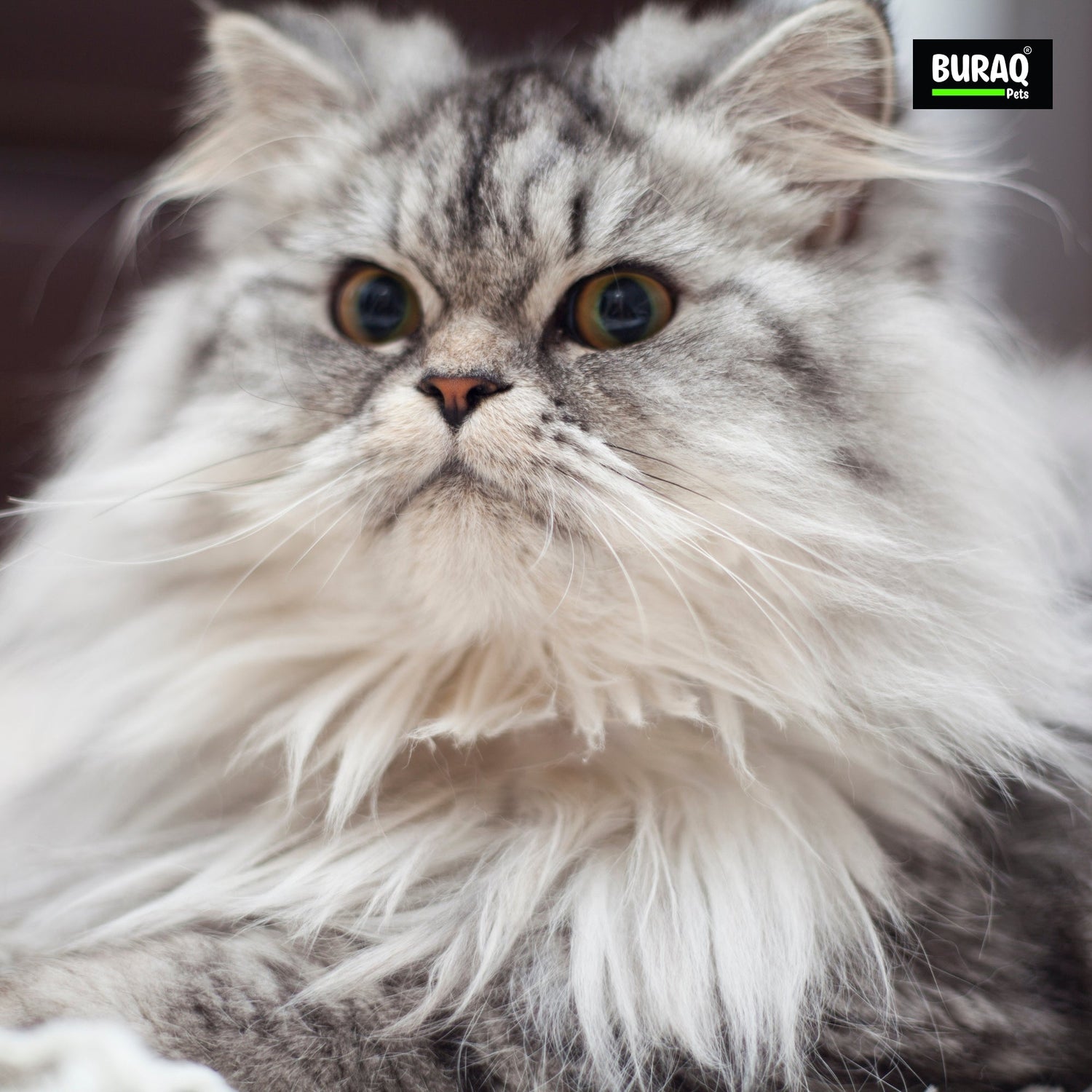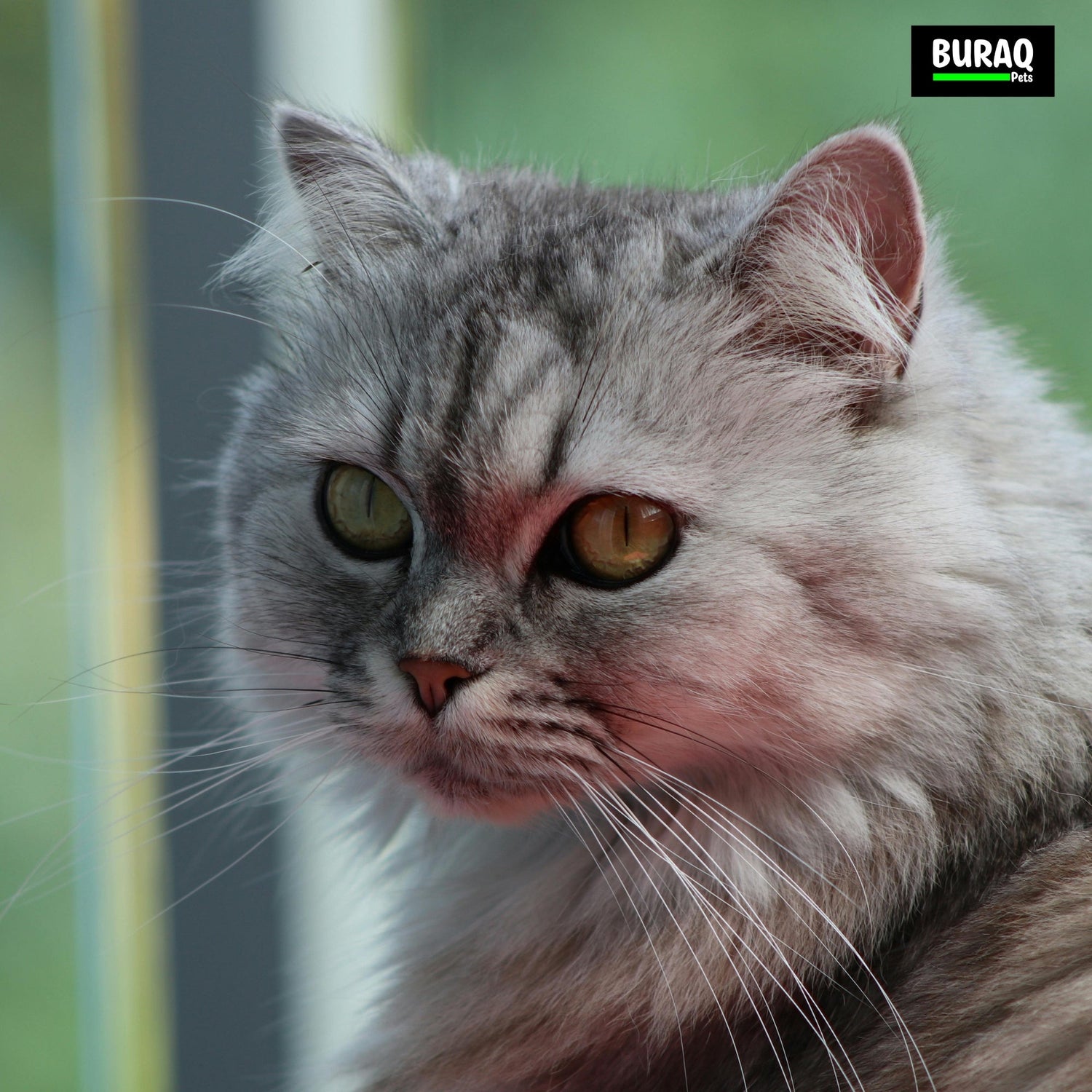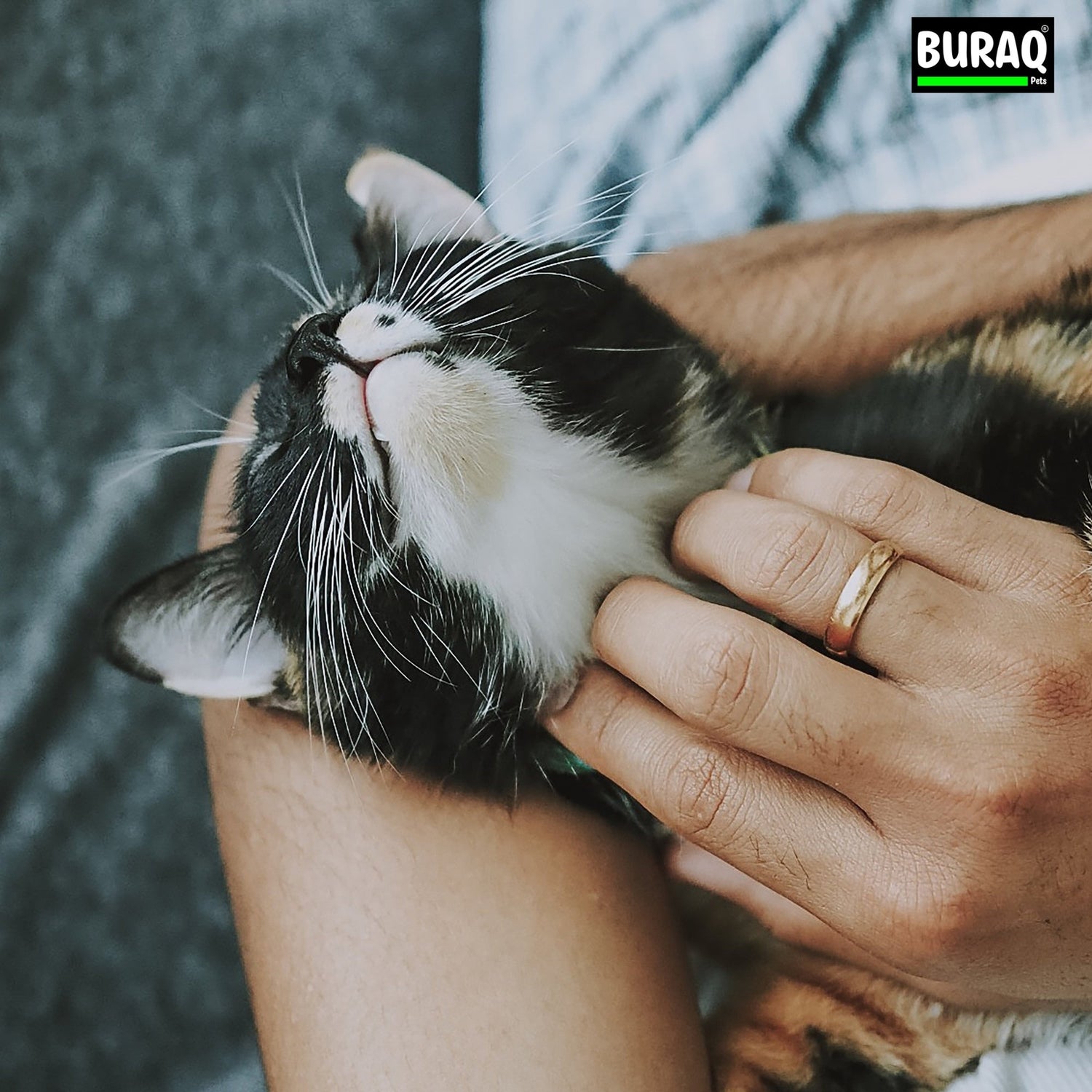
Introduction
That moment when your cat stares at you with those big, pleading eyes as you enjoy your dinner – every cat parent knows it well. Those silent demands for a taste of what’s on your plate can be hard to resist. According to a recent survey, nearly 67% of Indian cat parents admit to sharing their food with their feline companions occasionally.
When considering human food for cats, it’s essential to understand which options are safe and which could be harmful. While the intention behind sharing your meal comes from a place of love, not all human foods are safe for our feline friends. Their digestive systems and nutritional needs differ significantly from ours.
The risks of feeding human food without proper knowledge can range from mild digestive upset to severe health emergencies. Many cat parents wonder what human food can cats eat without causing health issues. This guide aims to help Indian cat parents navigate this common dilemma with vet-approved information about safe human foods that can be shared occasionally with your beloved feline.
Understanding Human Food for Cats: Benefits and Risks
Are All Human Foods Dangerous?
Contrary to popular belief, not all human foods are harmful to cats. There are several safe human food for cats that can be offered as occasional treats. However, moderation is the key word here. Even the safest human foods should make up no more than 10% of your cat’s daily caloric intake. The remaining 90% should come from complete and balanced cat food that meets all their nutritional requirements.
The absence of seasonings is another crucial factor. Cats’ digestive systems aren’t designed to process the spices, salt, and other additives we enjoy in our food. Plain, unseasoned food is the only safe option when sharing with your cat.
Indian Dietary Habits vs. Feline Digestive Systems
Indian cuisine is known for its rich flavors, aromatic spices, and diverse ingredients. However, what makes our food delicious for us can be problematic for our cats. The typical Indian kitchen uses ingredients like onions, garlic, chili, and various spices – all of which can be harmful to cats.
Cats are obligate carnivores, meaning their bodies are designed primarily to digest animal protein. Their digestive systems lack certain enzymes needed to process many plant-based foods and have difficulty handling spices, excessive salt, or oil – staples in Indian cooking.
Dr. Sharma, a leading veterinarian in Mumbai, explains: “The feline digestive tract is shorter than humans’ and processes food differently. They cannot detoxify certain compounds that are harmless to us. This is why many common Indian food ingredients can cause problems ranging from digestive upset to serious toxicity in cats.”
What Human Food Can Cats Eat Safely in Indian Households?
When it comes to sharing food with your cat, quality and preparation matter significantly. Here are five human foods commonly found in Indian households that you can safely share with your cat in moderation:
1. Cooked Chicken
Chicken is a staple protein in many Indian homes and fortunately, it’s also one of the best human food treats for cats. Rich in high-quality protein, cooked chicken supports muscle maintenance and provides essential amino acids.
How to prepare it safely:
- Use boneless chicken pieces to eliminate choking hazards
- Cook thoroughly without any oil, butter, or ghee
- Avoid all seasonings including salt, haldi (turmeric), or any masalas
- Remove all skin as it contains fat that can cause digestive upset
- Serve in small, bite-sized pieces at room temperature
A small cube of plain boiled chicken (about 1 inch) is sufficient as an occasional treat. Remember that chicken should be freshly cooked and never served with bones, which can splinter and cause serious internal injuries.
2. Boiled Egg
Eggs are nutritional powerhouses and are readily available in most Indian households. They provide high-quality protein, vitamins, and minerals that can benefit your cat.
How to prepare it safely:
- Boil the egg completely – no runny yolks or whites
- Never use oil, salt, or spices
- A small piece (about 1/4 of an egg) is sufficient for a treat- Can be offered once or twice a week at most
Eggs contain taurine, an essential amino acid that cats need for heart and eye health. However, raw eggs should never be given as they contain avidin, which can interfere with biotin absorption, and may carry salmonella.
3. Cooked Pumpkin
Pumpkin (kaddu) is commonly used in Indian cooking and offers excellent benefits for cats with digestive issues. It’s high in fiber and can help with both constipation and diarrhea.
How to prepare it safely:
- Steam or boil plain pumpkin without any spices
- Mash it into a smooth consistency
- Serve only a teaspoon at a time
- Store unused portions in the refrigerator for up to 3 days
“Pumpkin is one of my go-to recommendations for cats with hairball issues,” says Dr. Patel, a veterinarian from Delhi. “The fiber helps move hairballs through the digestive tract more efficiently, potentially reducing vomiting episodes.”
4. Cucumber Slices
Cucumbers (kheera) are hydrating, low-calorie treats that many cats enjoy for their crunch. They’re especially good during hot Indian summers when additional hydration is beneficial.
How to prepare it safely:
- Wash thoroughly to remove any pesticides
- Cut into thin, small slices to prevent choking
- Remove all seeds if your cat has a sensitive stomach
- Offer just 1-2 small slices occasionally
While not nutritionally essential for cats, cucumbers can be a refreshing, hydrating treat. Some cats enjoy the texture, making it a fun way to bond with your pet.
5. Plain Curd (Dahi)
Plain curd or yogurt is a staple in Indian homes and can be beneficial for some cats. It contains probiotics that may support gut health, though it should be given with caution as many adult cats are lactose intolerant.
How to prepare it safely:
- Use only plain, unsweetened curd
- Start with a very small amount (1/4 teaspoon) to test tolerance
- If no digestive upset occurs, you can offer up to 1 teaspoon occasionally
- Always serve at room temperature
“While many cats are lactose intolerant, plain curd contains less lactose than milk and may be tolerated by some cats,” explains Dr. Mehra, a feline specialist from Bangalore. “The probiotics can support digestive health, but always start with tiny amounts to see how your individual cat responds.”
Cat Feeding Tips India: How to Introduce Human Foods Properly
When introducing any new food to your cat’s diet, following these guidelines will help ensure their safety and well-being:
Portion Size Recommendations
The size of your cat determines how much human food they can safely consume. As a general rule:
- Small cats (2-3 kg): No more than 1 teaspoon of human food
- Medium cats (4-5 kg): No more than 2 teaspoons of human food
- Large cats (6+ kg): No more than 1 tablespoon of human food
Remember that these amounts represent the total human food treats per day, not per feeding. Exceeding these portions can lead to nutritional imbalances and weight gain.
Frequency Guidelines
Human food should be an occasional treat, not a regular part of your cat’s diet. Following these cat feeding tips India veterinarians recommend will help keep your pet healthy:
- Limit human food treats to 1-2 times per week
- Never replace a regular meal with human food
- Maintain a consistent feeding schedule with proper cat food
- Introduce only one new food at a time to monitor for reactions
“The 90/10 rule is what I recommend to all my clients,” says Dr. Verma, a veterinary nutritionist. “90% of calories should come from complete and balanced cat food, and no more than 10% from treats, including human food.”
Monitoring for Adverse Reactions
When offering human food to your cat, careful observation is essential:
- Watch for signs of digestive upset (vomiting, diarrhea, or constipation)
- Monitor for allergic reactions (excessive scratching, hair loss, or skin irritation)
- Note any behavioral changes after introducing a new food
- Keep a food diary if you’re regularly offering human food treats
If you notice any adverse reactions, discontinue the food immediately and consult your veterinarian. Some cats may have individual sensitivities even to foods that are generally considered safe.
What Human Food is Bad for Cats: Foods to Avoid
Understanding what human food is bad for cats is crucial for preventing potential health emergencies. Many common ingredients in Indian cooking can be harmful or even toxic to cats. Here’s a list of foods you should never share with your feline friend:
Toxic Foods That Can Be Fatal
- Onions and Garlic: Found in almost every Indian dish, these can cause hemolytic anemia (destruction of red blood cells)
- Chocolate and Caffeine: Contains methylxanthines that can cause vomiting, diarrhea, rapid breathing, heart rate issues, and even seizures
- Grapes and Raisins: Can cause sudden kidney failure even in small amounts
- Alcohol: Even small amounts can cause brain and liver damage
Common Indian Foods to Avoid
- Milk and Dairy Products (except small amounts of plain curd): Most adult cats are lactose intolerant
- Spicy Foods: Can cause digestive upset and inflammation
- Fried Foods: High fat content can lead to pancreatitis
- Sweets and Desserts: Sugar is unnecessary for cats and can lead to obesity and dental problems
- Bread Dough: Can expand in the stomach and produce alcohol as it ferments
- Bones: Can splinter and cause choking or internal punctures
“I’ve seen too many emergency cases where well-meaning cat parents shared their dinner without realizing the dangers,” warns Dr. Kapoor, an emergency veterinarian from Chennai. “Foods like butter chicken or fish curry may seem like treats your cat would enjoy, but the spices, cream, and other ingredients can cause serious health issues.”
Final Thoughts: Balancing Treats with Health
Sharing occasional human food treats with your cat can be a wonderful bonding experience when done safely. There are several common Indian food cats can eat when prepared properly without spices. The key is balance, caution, and careful observation.
Remember these essential points:
- Always prioritize your cat’s regular, balanced diet
- Introduce human foods gradually and in tiny amounts
- Prepare foods plainly without seasonings, oil, or spices
- Watch for any signs of digestive upset or allergic reactions
- When in doubt, consult your veterinarian
Preparing homemade food for cats can be rewarding when you follow proper nutritional guidelines. However, it should never completely replace commercial cat food that’s formulated to meet all their nutritional needs.
“The strongest bond with your cat comes from proper care, not from sharing your dinner,” says Dr. Sharma. “If you want to occasionally offer safe human foods as treats, that’s fine – but your cat’s health should always come first.”
When looking for safe cat treats India offers many natural options that can be prepared at home. By following the guidelines in this article, you can occasionally share appropriate human foods with your beloved feline companion while keeping them healthy and happy for years to come.
Remember, knowing what can cats eat safely from your kitchen helps strengthen the bond with your feline friend while ensuring their wellbeing. When in doubt about any food or if your cat shows any adverse reaction, always consult with your veterinarian for personalized advice.






